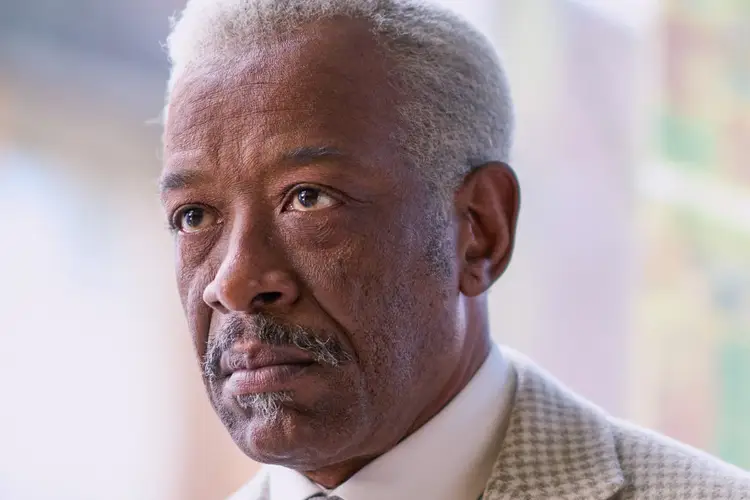Mr Loverman is a moving testament to the enduring power of self-acceptance – review

Get Instant Breaking News Alerts Via Email
Subscribe To Our Free Breaking News Alerts
Subscribe For Free Breaking News Updates
I would love to receive emails regarding promotions, events, and news from The Independent. Please take a look at our privacy policy.

"Love isn't true love if it changes when faced with change," wrote William Shakespeare in the well-known Sonnet 116. These words, often repeated in countless wedding toasts, express a shared hope (though not always a reality): that love remains constant and forgiving. However, for the Shakespeare-admiring protagonist in BBC One's new eight-part series, Mr. Loverman, love proves to be a much more complicated matter, one that will lead him to the brink of despair and back.
Barrington "Barry" Walker (played by Lennie James) has experienced considerable success in Britain since he arrived from Antigua many years ago. He considers himself a "man of property and style" and has thrived in the business world, now residing in an expansive home with his devout wife, Carmel (played by Sharon D Clarke). Barry continues to support his adult daughters, the unreliable Maxine (portrayed by Tamara Lawrance) and Donna (Sharlene Whyte), who has her son attending an expensive private school thanks to his grandfather's financial help. However, there’s a significant hurdle: Barry has maintained a hidden same-sex relationship with his lifelong friend Morris (Ariyon Bakare) since their youth. As time runs short for their clandestine connection, each shared moment grows increasingly treasured. "Come on, Barry," he urges himself, "you know that facing the truth will bring you freedom."
The situation is more complicated than it seems. Barry and Morris's chance for happiness is obstructed by the very valid frustration of Barry’s deeply religious wife. As he stumbles in drunk in the early hours, she tells him, “I’ll have plenty of time to sleep when the good Lord calls me, and that won't be long now.” Additionally, there's the broader perspective of the community: both men have faced firsthand and witnessed acts of homophobic violence. On top of that, their family situations are unstable—Morris has already lost his family, while Barry's relationships are fraught and hanging by a thread. The dream of having it all has slipped away, but they are both keenly aware that the moment to seize their chance is fast approaching.
Inspired by Bernardine Evaristo's Booker Prize-winning novel "Girl, Woman, Other," this series doesn't offer easy solutions. Spanning eight brief episodes that are a crisp 30 minutes each, writer Nathaniel Price delves into the intricacies of the narrative. Barry faces the consequences of his lies, and his difficult circumstances are portrayed without any sugarcoating. This story is about self-acceptance, regardless of age, and it highlights a powerful truth often overlooked in fiction: you are the main character in your own life.
By embracing this subtlety, James gets a chance to truly shine. He has become a trusted figure in both British and international television, showcasing his talent as the stylish and unpredictable Barry. Bakare complements him well as his calmer and more reliable counterpart. Together, their interactions often carry a theatrical feel, with the flowing dialogue reminiscent of a blend of Shakespearean and regional speech that fills various settings like kitchens and cafes. This dynamic proves to be more engaging on screen compared to the generational relationships, where the show takes a different direction. “Look out everybody,” Barry's internal thoughts reflect, “it’s like a soap opera has landed in Dalston!” The storylines involving Barry's daughter Maxine and grandson Daniel (Tahj Miles) come across as more aligned with BBC Three, while the rest of the show embodies the essence of BBC One.
However, it can be exhausting to encounter numerous stories of suppressed homosexuality, particularly in minority communities, that focus solely on pain and hardship. That's why it's a breath of fresh air to find a show that allows its characters to have their own choices. They have the freedom to make decisions, whether those choices are right or wrong, and create their own journeys. *Mr Loverman* is a concise yet poignant reminder of the lasting strength of embracing oneself.













































